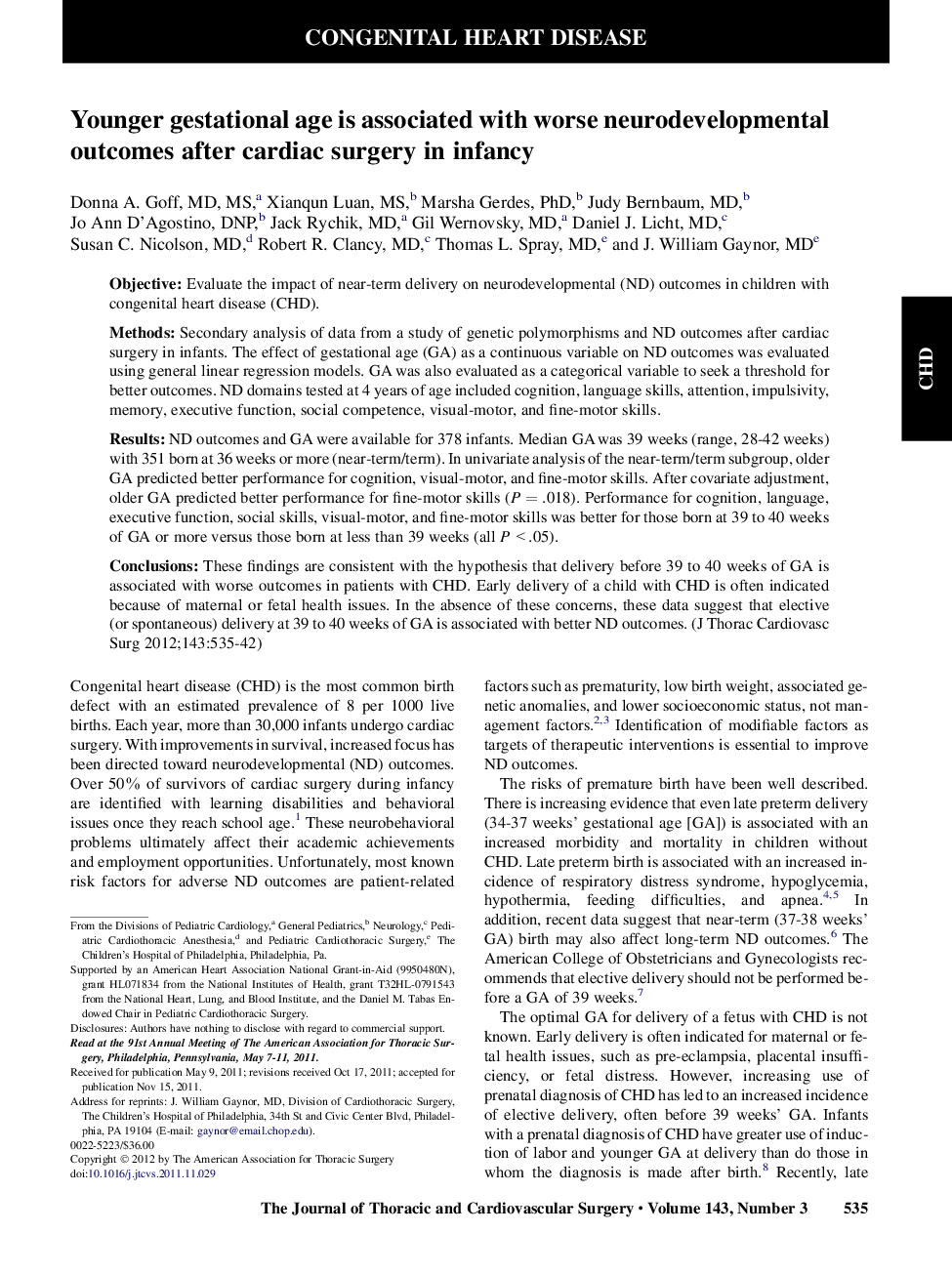| Article ID | Journal | Published Year | Pages | File Type |
|---|---|---|---|---|
| 2982296 | The Journal of Thoracic and Cardiovascular Surgery | 2012 | 8 Pages |
ObjectiveEvaluate the impact of near-term delivery on neurodevelopmental (ND) outcomes in children with congenital heart disease (CHD).MethodsSecondary analysis of data from a study of genetic polymorphisms and ND outcomes after cardiac surgery in infants. The effect of gestational age (GA) as a continuous variable on ND outcomes was evaluated using general linear regression models. GA was also evaluated as a categorical variable to seek a threshold for better outcomes. ND domains tested at 4 years of age included cognition, language skills, attention, impulsivity, memory, executive function, social competence, visual-motor, and fine-motor skills.ResultsND outcomes and GA were available for 378 infants. Median GA was 39 weeks (range, 28-42 weeks) with 351 born at 36 weeks or more (near-term/term). In univariate analysis of the near-term/term subgroup, older GA predicted better performance for cognition, visual-motor, and fine-motor skills. After covariate adjustment, older GA predicted better performance for fine-motor skills (P = .018). Performance for cognition, language, executive function, social skills, visual-motor, and fine-motor skills was better for those born at 39 to 40 weeks of GA or more versus those born at less than 39 weeks (all P < .05).ConclusionsThese findings are consistent with the hypothesis that delivery before 39 to 40 weeks of GA is associated with worse outcomes in patients with CHD. Early delivery of a child with CHD is often indicated because of maternal or fetal health issues. In the absence of these concerns, these data suggest that elective (or spontaneous) delivery at 39 to 40 weeks of GA is associated with better ND outcomes.
